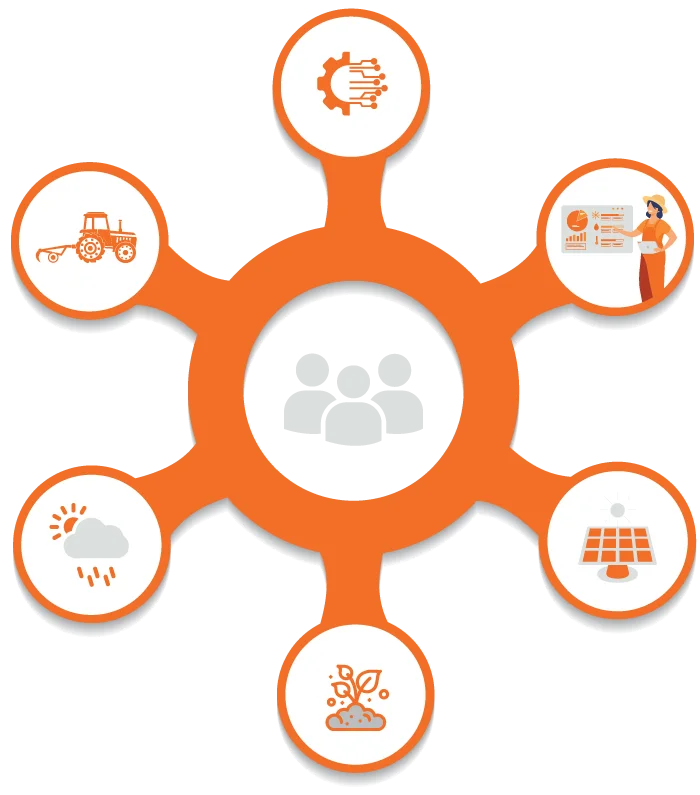
The Arid Lands Information Network/Reseau d’Information des Terres Arides (RITA-ALIN) (hereinafter ALIN) was registered in Kenya in 2001. The history of ALIN, however, dates back to 1987 when Oxfam GB held a workshop in Benin, attended by its staff and partners from 12 countries covering the west and east African Sahel, including Kenya. This led to the formation of ALIN whose purpose was to address the isolation of project officers working to support small-scale agricultural producers across the Sahel (the eco-climatic and biogeographic zone of transition in Africa between the Sahara Desert to the north and the Sudanian Savanna to the south). ALIN aimed to promote stronger contact between project officers using appropriate communication materials – principally the newsletter ‘Baobab’- and through face-to-face exchanges and workshops. The organization then facilitated writers’ workshops to increase the confidence of network members in recording their work by producing a series of booklets covering a range of pastoral issues.
Oxfam GB hosts a major cross-regional workshop in Cotonou, Benin targeting field officers from Angolophone and Francophone regions to share lessons and experiences. The idea for arid network is born and an Arid Lands Unit is established within Oxfam.
First Issue of the BAOBAB appears [‘no title’ issue] with cross regional experinces is published. The Network begins to take shape.
Arid Lands Unit becomes the Arid Lands Information Network, with decision to relocate main office to Senegal the following year
The Arid Lands Information Network/Reseau d’Information des Terres Arides (RITA-ALIN) is registered as an independent UK Charity and moved to Senegal
ALIN receives first major grant from NOVIB and opens a small satellite office in Kenya with part-time liaison officer in collaboration with ITDG now Practical Action.
Founding coordinator, Ced Hesse, departs ALIN after nearly 9 years. Search for new Director begins. ALIN receives financial support from Charity Projects
New East African regional coordinator – James Nguo – takes over from Bob Wagner
ALIN makes a strategic shift in the new Millennium necessitated by a global change in the role of traditional networks.
The shift moves ALIN’S focus from a Pan-African network covering both Francophone and Anglophone Africa to an East African focus informed by the need to consolidate the network and enhance efficiency.
East Africa Liaison office becomes ALIN headquarters and is hosted by ITDG now Practical Action.
ALIN is formally registered in Kenya as an International NGO.
ALIN starts implementation of ICT projects using the WorldSpace satellite technology.
ALIN pilots the Open Knowledge Network (OKN) in collaboration with Oneworld International, UK resulting in establishment of Community-based Access Points.
1st External Evaluation of ALIN is done
ALIN starts a private computer recycling centre in Nairobi targeting nonprofits and a software donation program in collaboration with TechSoup, US.
The first international exchange visit is organized for Ethiopia network members in close collaboration with CARE Ethiopia.
Community-based Access Points become Community Knowledge Centres with more ICTs and field-based activities.
The Community Information Volunteers (CIV) programme is launched to support the work of Community Knowledge Centres
ALIN deploys the first VSATs at 3 Community Knowledge Centres; Nguruman, Mutomo and Marigat in collaboration with University of Michigan to support connectivity.
ALIN launches the first shipping container Maarifa centre in Isinya and starts training of web 2.0 application at community level.
ALIN Uganda is registered in Uganda and deploys 3 Maarifa Centres in northern Uganda
ALIN wins the Access to Learning Award from the Global Libraries Program of The Bill & Melinda Gates Foundation for conceiving and bringing to life the Maarifa concept.
ALIN is a co-winner of UNESCO IPDC Prize for Rural Communication for reaching to many rural communities using the Maarifa centre model
ALIN’s Maarifa concept is scaled up in a Community Network project called Internet Now! -a partnership between ALIN, OxfamNovib, Samasource and Inveneo covering northern Uganda.
ALIN rolls out a social enterprise, Sokopepe focusing on farm records and access to markets with support from USAID/Kenya Feed the Future Program.
ALIN rolls out a new strategy on Climate Resilience, Agriculture productivity and Digital Transformation